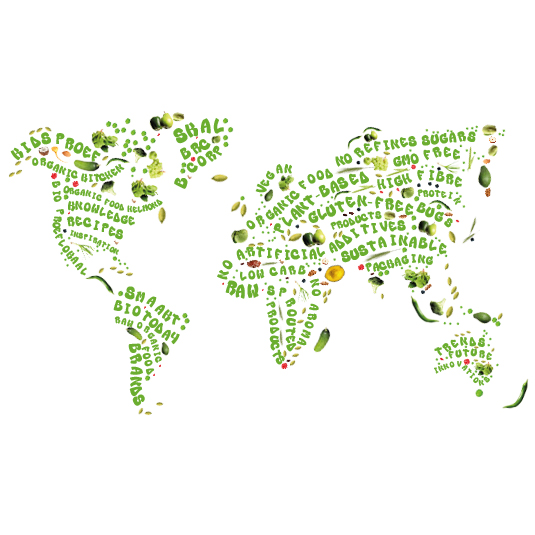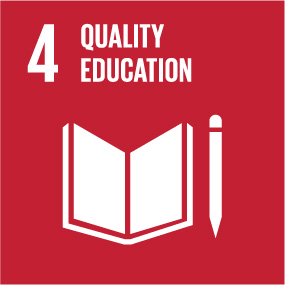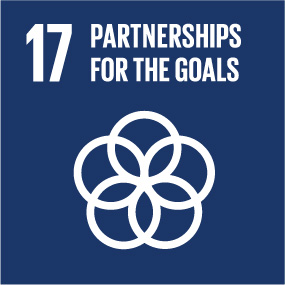What do you want the world to look like in 2030? This thought made the world leaders adopt a global agenda consisting of 17 Sustainable Development Goals (SDGs), that address the global challenges we face. These goals are the blueprint to achieve a better and more sustainable future for all. Both organizations, government, institutions and civilians should commit to these goals in order to achieve them in 2030. The SDGs are a huge inspiration for de Smaakspecialist. Especially because food, both the production and consumption, has a massive impact on achieving these goals. Research shows that organic agriculture contributes in many positive ways to a sustainable world (ánd the goals). We can say that de Smaakspecialist contributes to already 9 of the 17 goals, and we will keep challenging ourselves in order to increase our impact.
Organic is part of the solution
In the report Organic Agriculture and the Sustainable Development Goals, that is presented by organic organizations in cooperation with Bionext, the impact of food production and the positive influence of organic agriculture on the planet is described extendedly.


All products of de Smaakspecialist are organically farmed. This means organic farmers enrich their soil with natural resources and the same piece of land can be used over and over to grow products, without degradation of the soil. In the long term organic agriculture produces a higher yield per square meter than traditional agriculture. So in the end we can produce more food this way, with the natural resources we have. Besides, especially in developing countries organic agriculture leads to a better harvest, because this way of agriculture is better adapted to a changing climate.

The health of humanity can not be seen separately from healthy ecosystems, with healthy soil, crops and animals. That’s why in organic agriculture artificial fertilizers, veterinary medicinal products and additives which may have negative health effects are avoided as much as possible. Also, organic products contain more nutritions and higher nutritional values than regularly farmed products.

De Smaakspecialist has developed the educational programme KidsProef (kids taste). KidsProef is a lesson programme for kids from year 7-8 (Dutch system, ages 10 till 12) about responsible nutrition, with care for humans, animals and the environment. By making kids conscious about responsible nutrition at a young age, they will take better care of themselves and the rest of the world.

Clean water asks for clean soil. Chemical pesticides and artificial fertilizers used in regular farming reach our water systems through the soil and groundwater. In organic farming the use of these artificial fertilizers and chemical pesticides is prohibited and therefore they are not contributing to the pollution of our water systems. Second of all healthy soil have an excellent water holding capacity, so the soil needs less water and can handle periods of drought better. Also healthy soils ensure better drainage, which results in less water loss from run-off.

Organic products are produced in the most natural way as possible. In organic agriculture this means using no chemical pesticides and using compost and organic fertilizers, in order to maintain healthy and living soils. De Smaakspecialist chooses her organic raw materials with the utmost care and cooperates with certified organic suppliers only. Of course, in the production process no artificial additives are added to ensure high quality organic products with high nutritional values. Also, sustainable packaging is an important part of the process; we use FSC certified paper and BioBased foil whenever possible.

Organic agriculture; less intensive use of the land, as less pesticides and fertilizers as possible and crop rotation contribute to soil vitality. Besides, research has shown that with organic agriculture the soil can store more carbon dioxide than with regular agriculture; a healthy and nurtured soil reduces the amount of CO2 in the atmosphere. The assortment of de Smaakspecialist is, next to organic, 90% vegan. Food production is responsible for 20 till 35% of the greenhouse gas emissions, of which half is coming from animal products. A plant-based eating-style helps to reduce these gas emissions tremendously.

The use of synthetic pesticides causes (amongst others) the so-called ‘dead zones’ in the oceans. This is one of the major issues that our oceans and seas are being confronted with. In these dead zones there is little to no oxygen to support life. As organic agriculture prohibits the use of synthetic pesticides, there is little to no risk of synthetic pesticide pollution of ground and surface waters. It is important to mention, however, that when organic farmers use manure fertilization that this can also reach waterbodies and contribute to dead zones.

By producing our products in a sustainable way, we also make use of the existing ecosystems in a sustainable way. Besides, organic agriculture contributes to maintaining biodiversity. It is proven that more (wild) plant species, insects and micro-organisms, both on and underneath the ground, are found on organically farmed soils. This again has to do with less intensive use of the land, crop rotation and the use of natural resources (instead of chemical pesticides and fertilizers).

De Smaakspecialist has a cooperation with different organizations which pursue sustainable and/or social goals. Amongst others, we have a partnership with MVO Nederland (meaning: carrying out social duties) and sustainable consumer platform Nudge. We work together intensively with social working company Organic Food Helmond, with colleagues who have ‘a distance to the labour market’. And last but not least we are a certified B Corp, which makes us a social venture and part of the worldwide B corp community.